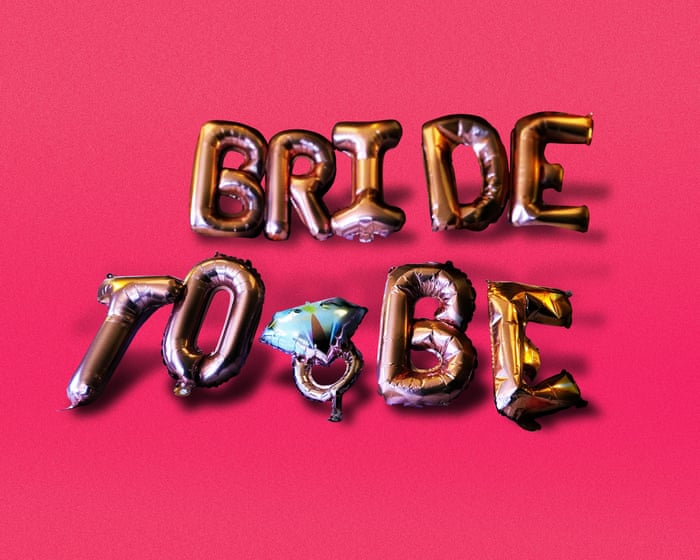The saying that “politics is showbiz for ugly people” is clever enough to feel true, but it’s not quite accurate. Politics has always been its own world, distinct from entertainment—except in the unique case of Donald Trump. The current U.S. president is best understood as a superstar from the era of excess. It’s remarkable that Trump never even needed cocaine; I suspect scientists will one day discover his body naturally produced it as a byproduct of digesting overcooked hamburgers.
Everything he says or does reflects not a politician, but an ego-driven entertainment titan. His appearance in Egypt on Monday, with world leaders awkwardly trailing behind him, felt like the official release party for a peace process. Ego can be incredibly creative, so it’s worth acknowledging that this fragile settlement likely wouldn’t have happened without our leading man.
In recent years, you may have read lengthy analyses of the “Trump doctrine,” often penned by former foreign ministers or respected diplomats, yet they consistently miss the essence of who they’re dealing with. The reason they struggle to define it convincingly might be that many of them either look down on showbiz or know as little about it as they do about some obscure branch of theoretical chemistry. They get tangled up comparing Trump to Henry Kissinger, Benjamin Franklin, or a 20th-century European dictator, when they should be looking at Elizabeth Taylor, Taylor Swift, or Led Zeppelin in their prime.
This confusion is puzzling because Trump makes his star-centered ethos very clear. He constantly talks about his ratings, releases political diss tracks twice a week, can’t stand anyone else getting more attention, excels at staging events, and absorbs team efforts into his own persona. He’s self-absorbed, unpredictable, and easily bored—both by nature and by design. Showbiz icons are born and made, and what we witnessed in Israel and Egypt was the modus operandi of a megacelebrity at the peak of their influence.
It’s notable that in an age where “authenticity” is highly praised, no one ever asks of Trump, “But what does he really believe?” It’s all right there on display. You’re watching it. There’s no hidden method—or if there is, it’s guided by the anti-philosophy that the first part of “method” is “me.” Everything he does, including the current ceasefire and peace plan, stems from the star practice of having people pitch him projects that only get the green light if his name is attached.
People bring him all sorts of ventures—international hotel deals, peace processes, fragrance lines. All become what Hollywood would call “a Donald Trump vehicle.” If this ceasefire holds and evolves, there might even be merchandise tied to it. After the assassination attempt last year, he released a “Fight, Fight, Fight” fragrance that’s perpetually sold out on his website. Don’t be surprised if a “Peace Through Strength” aftershave pops up online soon.
Few superstars act purely for humanitarian or artistic reasons anymore. Commerce becomes a way to keep score and plays a bigger role. I suspect Blake Lively took legal action against Justin Baldoni when she saw how an alleged smear campaign hurt sales of her new haircare line. Taylor Swift went to war with Katy Perry over backing dancers—or, as Taylor saw it, an attempt to sabotage her arena tour. It’s hard to shake the feeling that when Trump moved on this…When Trump brokered a peace deal, his motives were self-serving. Business is his true passion, and you’d be wise not to interfere without his approval. Take Qatar, for instance, where the Trump organization had just secured a $3 billion deal to build a luxury golf resort—you definitely wouldn’t want to launch misguided missiles there. How dare you, Bibi?!
Skip the newsletter promotion.
It’s a shame for Trump, whose Nobel aspirations were crushed by plain old common sense, as Dave Schilling notes.
As I mentioned, such ego can yield entertaining moments. During Monday’s Knesset speech, Trump unexpectedly brought up Netanyahu’s long-delayed fraud and bribery trials in what was one of the most amusing political ambushes you’ll ever witness. It’s hard not to laugh in disbelief. “Give him a pardon, come on,” Trump quipped. “Cigars and champagne, who really cares about that?” Incredible.
With that photo op in Egypt, we’re supposed to believe Trump has entered his peacemaker phase. But it reminds me more of Taylor Swift’s album film, where she appears late in the creative process and her ideas are treated as brilliant, all conveniently adopted. Is she really the source of all of them? That’s the impression she, as the director, gives.
I suspect the White House operates similarly. In fact, I don’t have to guess. When Trump missed out on a Norwegian award last week, a White House spokesperson pulled a Kanye-style interruption, angrily stating, “He has the heart of a humanitarian, and no one else can move mountains with his sheer will.” Well, there’s always next year, by which time we might be in new territory. Many have achieved an Egot (Emmy, Grammy, Oscar, Tony), but only one is aiming for an Egont.
Marina Hyde is a Guardian columnist.
Join John Crace, Marina Hyde, and Pippa Crerar on Tuesday, December 2, as they reflect on another remarkable year in Westminster, with special guests, live at the Barbican in London and streamed worldwide. Get tickets at guardian.live.
Frequently Asked Questions
Of course Here is a list of FAQs about the statement Putting Donald Trump next to Kissinger might leave you puzzled but Taylor Swift Now that makes sense
BeginnerLevel Questions
1 What does this statement even mean
Its a comment on how we categorize famous people The speaker finds it confusing to compare Donald Trump with Henry Kissinger but finds it perfectly logical to compare either of them to Taylor Swift
2 Why would comparing Trump and Kissinger be puzzling
Because they operated in different political eras and contexts Kissinger is known for a specific intellectual brand of foreign policy from the 1970s while Trump is known for a more disruptive mediadriven style of modern politics Comparing them directly is like comparing apples and oranges
3 How does Taylor Swift make sense in this context
Taylor Swift makes sense because she represents a dominant influential force in todays culture The statement suggests that her level of fame impact and ability to command public attention is a more relevant common denominator for understanding modern figures like Trump than a historical figure like Kissinger is
4 Is this saying Taylor Swift is like Donald Trump
Not necessarily in their actions or beliefs but in their scale of cultural influence The comparison is about their immense power to shape media narratives mobilize massive audiences and remain constantly in the public eye
Advanced Analytical Questions
5 What is the deeper commentary on modern fame and power
The statement argues that the nature of power has shifted Historical influence like Kissingers was based on statecraft and geopolitics Today influence is increasingly based on celebrity media savvy and direct public engagement a realm where both Trump and Swift are masters
6 Isnt this an oversimplification of these complex figures
Absolutely Thats part of the point The statement itself is a provocative oversimplification designed to make us think about how we measure impact in the 21st century versus the 20th
7 What common thread actually links Trump and Swift
Both have cultivated a powerful personal brand and maintain a direct unfiltered relationship with their supporters bypassing traditional institutions They are both phenomena of the digital media age



